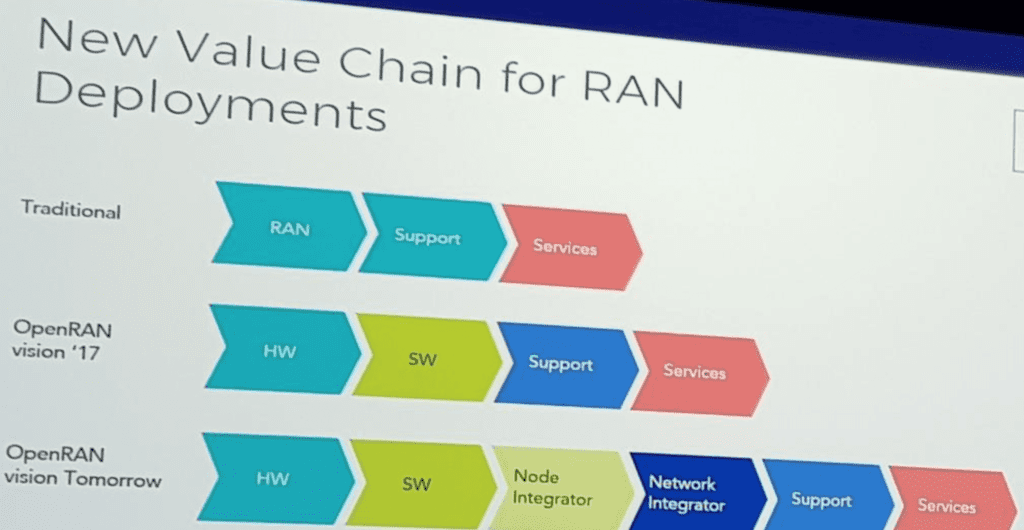Vodafone, Telefónica to pilot disaggregated RAN
The broad goal of the Telecom Infra Project is to take the cost out of crucial network infrastructure by disaggregating hardware and software and moving functionality onto commercial-off-the-shelf hardware. By pushing open interoperability between vendors, along with the move to COTS equipment, operators could gain deployment flexibility while cutting down on capital expense. During TIP’s annual summit this week in London, operators made major announcements around opening up the RAN and transport networks.
Earlier in the year, Vodafone and Telefónica issued requests for information from vendors interested in supporting open RAN initiatives. At the TIP Summit, the operators announced they would move into a pilot phase and named vendors best-suited to help. The broad RFI covered 2G, 3G and LTE network components, including RAN platform, software and radio hardware.
“RAN platforms can increasingly be seen as a commodity for telecoms operators, just as the hardware should be,” Andy Dunkin, senior manager of Vodafone Group’s Networks Division, wrote in a blog post. “Differentiation will come from the software and services that operators run over the RAN. In terms of operational readiness, we see a clear timeline which could support commercial networks from the second half of 2019. 4G was well supported, but 2G and 3G—which remain key in many emerging markets—less so, and therefore that is an area where we will work with vendors to extend compliance.”
Subscribe now to get the daily newsletter from RCR Wireless News
In terms of equipment suppliers, Vodafone called out Mavenir, Parallel Wireless and Altiostar for “most compliant [end-to-end] platforms;” Fairwaves and Parallel Wireless for 2G software; Mavenir and Parallel Wireless for 3G software; Altiostar, Parallel Wireless and Radisys for 4G software; and Baicells, NEC and Parallel Wireless for radio hardware.
On the transport side, Vodafone and Telefónica, along with TIM Brazil and Orange, worked together to define their needs for a disaggregated cell site gateway, and some of the group now plan to move on to issuing an RFI. Suppliers ADVA Optical Network and Edgecore Networks are working on developing equipment.
A TIP blog describes a cell gateway as a “critical device within the mobile network,” and posits that for 5G “this collaboration will offer an infrastructure option that is more open and that offers more choices, faster innovation, and cost efficiencies, supporting customer growth and increased demand for data.”
